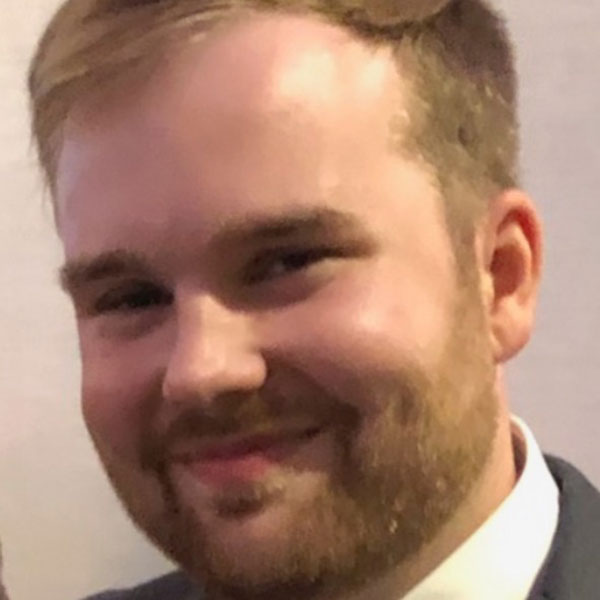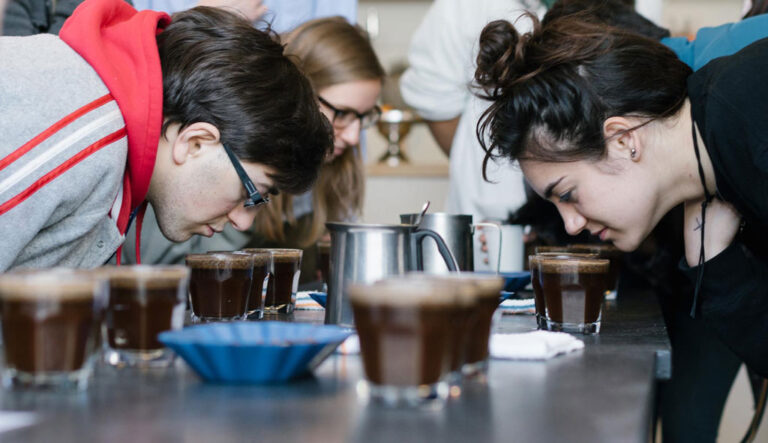Expanding and Empowering a Culture of Mentorship
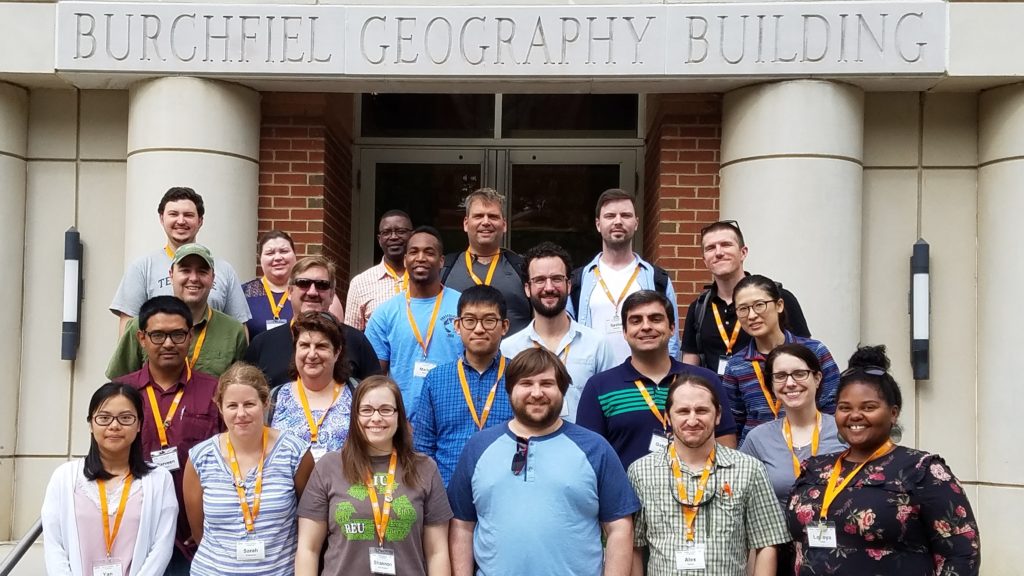
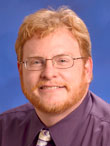 Words cannot adequately capture my excitement and honor to be able to serve as President of the American Association of Geographers. I look forward to working hard on behalf of AAG members and supporting and contributing to the excellent work of Executive Director Doug Richardson and the wonderful staff at Meridian Place.
Words cannot adequately capture my excitement and honor to be able to serve as President of the American Association of Geographers. I look forward to working hard on behalf of AAG members and supporting and contributing to the excellent work of Executive Director Doug Richardson and the wonderful staff at Meridian Place.
I have some big shoes to fill in following the recent presidencies of Glen MacDonald and Sarah Bednarz. Both have worked tirelessly in serving the Association. Please join me in thanking Glen and Sarah for their superb leadership.
For my first presidential column, I wish to focus on the power of mentorship and the innovative ways that geographers are approaching the social practice. I encourage further expansion and empowerment of the Association’s culture of mentoring and identify some strategies for doing so.
Careers as Social Relationships
Mentorship has been on my mind a lot lately. No doubt, my own career would have faltered long ago without the positive and patience “coaching up” I received from experienced colleagues, work supervisors, community partners and other collaborators. Mentorship need not be restricted to a one-way, hierarchal structure. Students have taught me some invaluable lessons. One of my doctoral advisees, Jordan Brasher, recently reminded me of this fact. He said something germane to this column: “While teaching and publishing are important in and of themselves, as well as communicating those ideas to the public, people and relationships are ultimately the currency on which we borrow, trade and accumulate value in our lives. We are only as good as the people we surround ourselves with and the people we impact.” In other words, one’s career, although it can feel like a lonely, solitary pursuit, is constantly defined by social relationships, with mentorship being one of those critical points of impact.
As a Department Head for the past five years, I have become acutely aware of the consequences of good and poor mentorship. It affects not just the individual professional but the larger health of the program and the discipline. As I write this column, we at the University of Tennessee are in the midst of hosting for the second time the Geography Faculty Development Alliance (GFDA) Early Career Workshop, a long-running immersive mentoring program for beginning faculty and senior graduate students. In the Knoxville workshops, we maintain the tradition of stressing active learning, tenure and promotion readiness, good practices in publishing and grant writing, work/life balance, and the advancement of diversity. But GFDA participants now also learn about media relations and public advocacy, civic-engaged teaching, and addressing controversial topics in the classroom. And workshop goers participate in improvisational (“improv”) games to sharpen their skills in listening, communication, and team-work and to help them let go of the “self-judgement” that often compromises their creativity and confidence.
The Call for More and Better Mentorship
Particularly striking from my two years of hosting and co-directing the GFDA workshop are the strong opinions that participants hold about their mentoring needs. They seek mentors who can help them establish networks in the discipline, speak candidly about job-related issues, and provide peer-based feedback and accountability. A number of early career colleagues ask for assistance in navigating what I call the “egosystem” of departmental politics and personalities. They have mixed experiences about the availability and effectiveness of mentoring at their home institutions; but all are united in saying they want more and better mentorship.
The call for increased mentorship is especially critical for those from historically under-represented groups within geography. Enhancing the efficacy of mentoring has a direct bearing on the ability of geography programs and other workplaces to recruit and retain talented women and people of color and to achieve greater representation and inclusion in the discipline. Yet, increasing mentorship activities is unsatisfactory if simply for the sake of checking off a human resources box or serving the growing push within universities and other workplaces to achieve peak performance or “return on investment” from employees.
“Mentoring by and for the numbers” is part of a political arithmetic that reduces our responsibility to each other to purely legal and market imperatives. A more helpful and ethical approach recognizes that mentorship can and should play a role in enhancing the sense of place and belonging, psychological and professional well-being, and social equality of others.
Mentoring Innovations in the AAG
There are noteworthy efforts within the AAG to encourage mentorship. The Association bestows annually the Susan Hardwick Excellence in Mentoring Award. Along with early career training, the Association helps support an annual department leadership workshop that meets in the same place and at the same time as the GFDA summer event. The AAG Department Leadership Workshop provides senior colleagues a chance to mentor each other in issues of program assessment and review, budgeting, personnel evaluation, student recruitment, and the nomination of faculty for awards—another key but sometimes neglected dimension of mentorship. Meanwhile, the AAG-ESRI ConnectED GeoMentors Program is assembling a large number of volunteers to go into K-12 schools to assist teachers with using GIS in the classroom. The new AAG Fellows Program, in addition to recognizing those who have made significant intellectual contributions to the field, is also about identifying mentors for faculty.
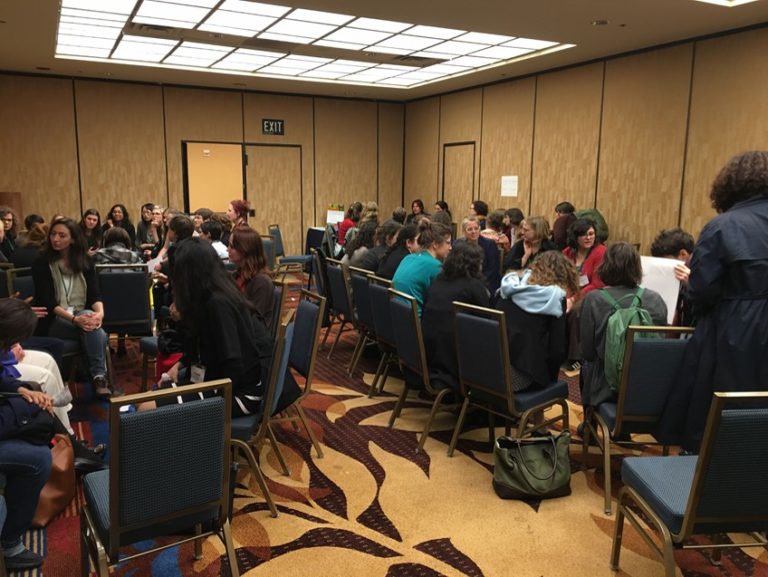
Rethinking the Who, When, and Where of Mentorship
Geographers are making important strides in growing a culture of mentorship within the AAG and beyond, but more can certainly be done.
First, a culture of mentorship recognizes that mentoring is a career-long need, although most mentorship has focused traditionally on students and early-career faculty members. There is far less attention paid to guiding Associate Professors to (full) Professors or to mentoring non-academics entering private industry, government agencies, and the not-for-profit sector. Professionals as they transition to retirement are also in need of mentoring and these retired colleagues are an untapped resource as mentors. A broader “whole-life” approach to mentorship can help manage anxiety and success at these career and life changes.
Second, a culture of mentorship recognizes the insufficiency of the traditional, single “guru-mentor” model for most people. Effective and meaningful mentoring happens by drawing from the expertise, experiences, and opinions of a community of mentors who can address the many varied needs of our professional and personal lives. My colleague Latoya Eaves introduces GFDA early career workshop goers to the idea of a “mentoring map,” an innovation available from National Center for Faculty Development and Diversity to assist faculty in cultivating networks of mentors, sponsors, and collaborators.
Third, a culture of mentorship recognizes that experience and professional success do not necessarily mean that a senior colleague is ready to guide and assist another professional. Mentoring is not the same as directing a student thesis or being someone’s supervisor. In this respect, it would be helpful to create “mentor the mentors” workshops to connect new mentors with veteran mentors and training materials for a variety of institutional settings.
Finally, a culture of mentorship recognizes the need to sometimes alter the conventional balance of power within the mentee-mentor relationship. Early career professionals are critical for helping their senior colleagues stay fresh on latest disciplinary, technological, and social trends. Taking a page from the Women’s Mentoring Network, we might consider creating more mentoring and workshop sessions at annual meetings to help coach and retool veteran geographers in cutting edge theories, methods, and issues. This would be a decidedly different environment from the formality of conventional paper or poster sessions.
If you have some thoughts about mentorship, then feel free to email me (dalderma [at] utk [dot] edu) or share on Twitter #PresidentAAG.
— Derek Alderman
University of Tennessee
Twitter: @MLKStreet

